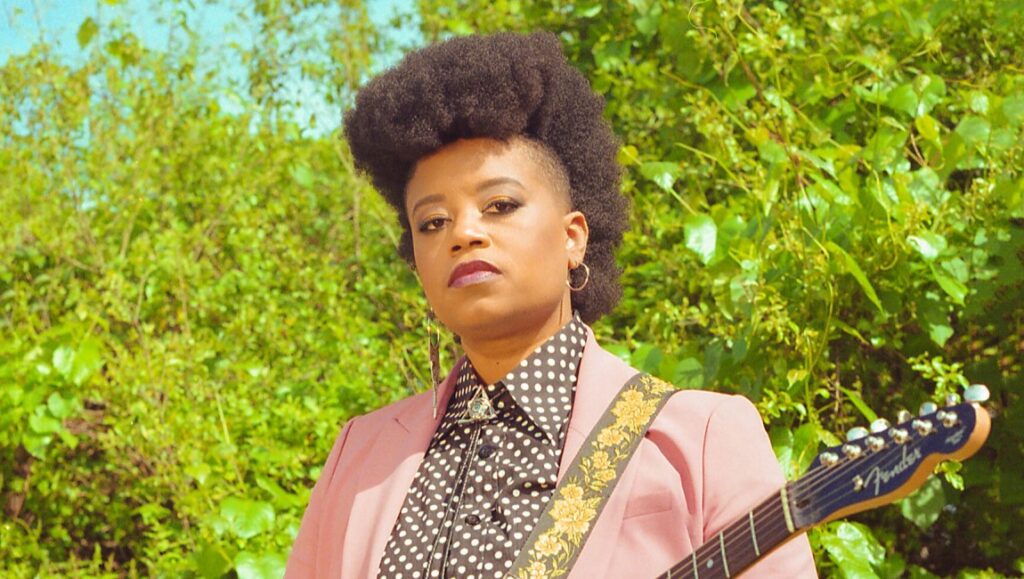Amythyst Kiah’s breakthrough autobiographical album dwells in the darkness without getting lost in the void.
If you know Amythyst Kiah, it’s probably through her involvement with Our Native Daughters, the Rhiannon Giddens-led all-star troupe that reasserted the centrality of Black women to the history of banjo music. You’ll know her even better after you listen to Wary + Strange, her exactingly autobiographical singer-songwriter breakthrough, which gracefully sidesteps whatever cliches such terminology might entail. The album bears vivid witness to how folk forms and American roots traditions can be a canvas for personal expression, rather than a purist’s straightjacket. Though Kiah writes in familiar idioms (“woke up this mo’nin’ feelin’ bad,” she moans at the outset of “Hangover Blues,” even the title nodding to well-trod ground), she renders her country-blues numbers in the brilliant colors of a blockbuster pop album: Aided by producer Tony Berg, who also produced Phoebe Bridgers’ Punisher, Kiah fleshes out her acoustic pickin’ and strummin’ with thumping beats and wheezing keyboard effects; bass harmonicas, flutes, and slide guitars. To call the album “polished” isn’t quite right; there’s too much fire in her voice and grit in her string-band virtuosity for that. Instead, the production effects kiss every song with a tinge of surrealism. Wary + Strange feels like nothing so much as a dream recollection of American roots music, the shapes basically correct but the details fuzzy in unexpected ways.
That sheen of dream-logic is the perfect accompaniment for Kiah’s songs, which conjure the sense of displacement that comes from being a Black, queer woman in Appalachia. (Kiah hails from East Tennessee, not too far from Dolly country.) Though the album contains a new version of “Black Myself,” her Grammy-nominated Our Native Daughters anthem — here sounding crisper, more swaggering than the original recording— Kiah mostly favors smaller, more intimate sketches. “Wild Turkey” is a staggering reminiscence of her mother’s death by drowning, but also a painstaking account of the breathing process; the widescreen production acts as a magnifying glass over Kiah’s detailed writing. And “Firewater” is a bleak admission of self-destruction that emanates compassion, not pity. Though much of the album dwells in darkness, it’s more like a journey of self-discovery than a descent into despair; why else would Kiah open and close the album with two versions of “Soapbox,” a rejection of pat moralism and unsolicited advice? The bruised truth-telling of Wary + Strange offers ample evidence of a firecracker singer and songwriter who knows she’s a work in progress, and relishes finding her own way.
Published as part of Album Roundup — June 2021 | Part 4.


Comments are closed.